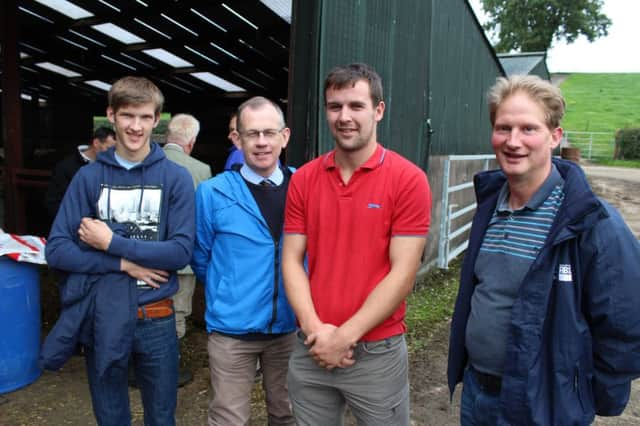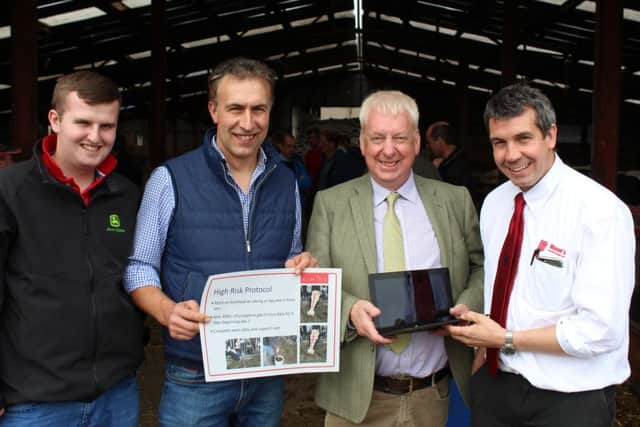Top turnout of farmers for dry cow farm walk


Organised in association with Mason’s Animal Feeds, the event focussed on the best management and feeding strategies that can be followed to ensure that the needs of pre-calving cows are met in full.
A tour of the farm yard area was included in the itinerary of the farm walk. Also included were presentations by the Mason’s advisory team, relating to the nutritional programmes followed on the farm. Mairead O’Grady, a veterinarian with John Lalor Veterinary discussed the specific health-related challenges that can impact on pre-calving cows.
Advertisement
Hide AdAdvertisement
Hide AdThe keynote presentation was given by consultant Archie Leitch, who profiled the benefit of feeding Bio-Chlor Down Calver Nuts, manufactured by Mason’s Animal Feeds, as a way of ensuring that cows calve down without problems and are ready to produce milk in the most efficient and effective way possible.


John Johnston milks 200 cows, averaging 9,200l. This figure has increased by 400l over the past 12 months. His cows are calving from August through to May. John has been feeding Bio-Chlor nuts to his pre-calvers for the past three years.
“The use of Bio-Chlor has significantly reduced transitional problems,” he confirmed.
“Cows calve down with excellent appetites. They are just ready to fire and reach peak milk yield earlier. Metabolic problems, which can be a real problem after calving, have also been significantly reduced.”
Advertisement
Hide AdAdvertisement
Hide AdColin Purdy, from Mason’s Animal Feeds, points out that the Down Calver Nut is fed at a rate of four kilos per day during the three weeks leading up to calving.


“It is offered with grass silage or, if available, 50% whole crop and 50% grass silage plus straw to appetite. Freshly calved cows and heifers reach peak yields much more quickly. These are sustained longer, resulting in greater overall lactation yield compared to those not receiving the Bio-Chlor close up pre calving nut.
“In addition to improved milk yields overall herd health is significantly improved, with much fewer displaced abomasums, milk fevers and retained placentas plus significantly improved fertility reported by those herdowners using the Bio-Chlor approach to dry cow management.”
Colin concluded: “There is no doubt that the modern dairy cow finds great difficulty, directly after calving, in achieving the intake of feed required to meet her nutritional needs from a milk production point of view. However, there is now a strong body of evidence that the use of Bio-Chlor three weeks pre-calving can help in getting around this problem and, significantly, improved conception rates, having reduced the negative energy imbalance in early lactation.”